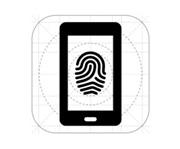Fingerprint scanning is the top biometric modality on mobile devices around the world, suggest new findings from a Fingerprint Cards-commissioned study. The results suggest that consumers prefer fingerprint scanning to passwords and PINs for mobile authentication. According to one infographic from the study, which appears to compare the availability of biometric technologies on smartphones to the proportion of consumers who use them, while fingerprint sensors are only available on 42 percent of devices, 82 percent of respondents with access to the technology said they use fingerprint authentication. Meanwhile, PIN and password authentication systems are available on 100 percent of all smartphones, but only 71 percent and 67 percent said they use these authentication methods.
The study was carried out by Kantar TNS in two phases. One looked at qualitative research, entailing two-hour focus group sessions with 48 consumers across London, Shanghai, and Delhi. The other was a quantitative survey of 4,000 consumers across the UK, China, India, and the US.
(Notably, 46 percent of those with access to mobile facial recognition technology said they use it, even though it’s only available on 11 percent of devices, and 51 percent of the users who have access to iris scanning smartphones said they use that technology for authentication, despite its penetration being at only four percent – all of which suggests that there’s a considerable appetite for more biometric options in general.) As for why users are so enthusiastic about fingerprint-based authentication, 46 percent said it was because of its ease of use, while 44 percent cited security and 28 percent cited its speed. Twenty-four percent thought it was cool. Of course, these attitudes could shift as major brands like Samsung and Apple continue to aggressively promote iris and facial recognition authentication systems, respectively; but what’s clear enough now is that consumers want biometric options, and fingerprint scanning is at the top of the list








